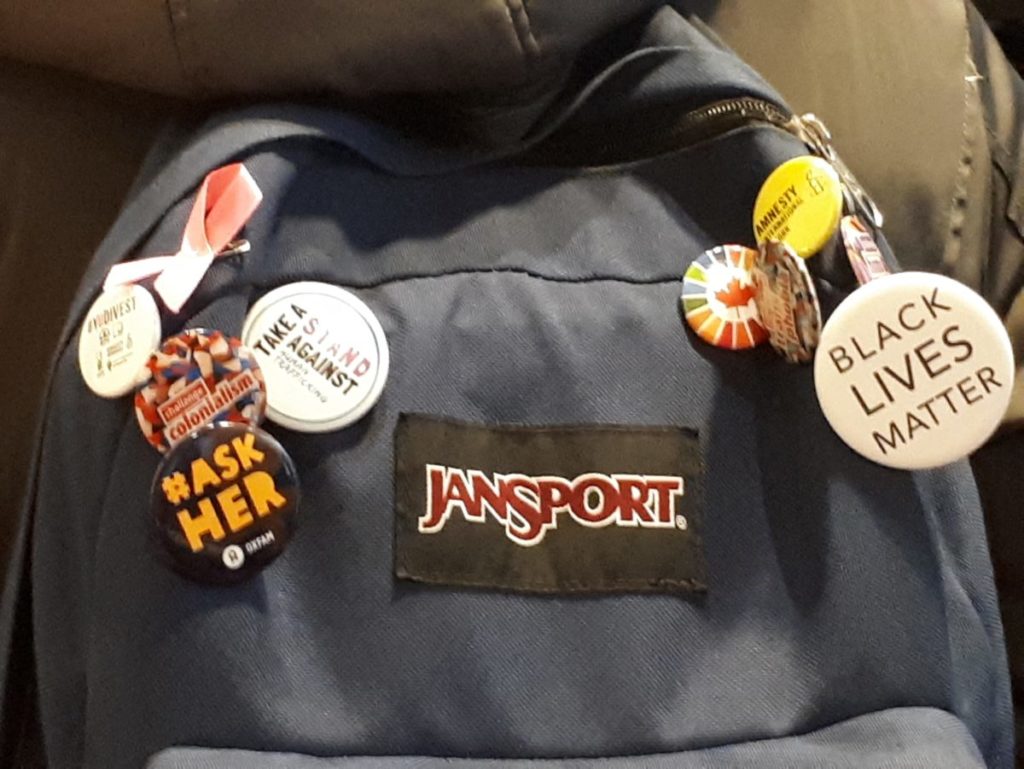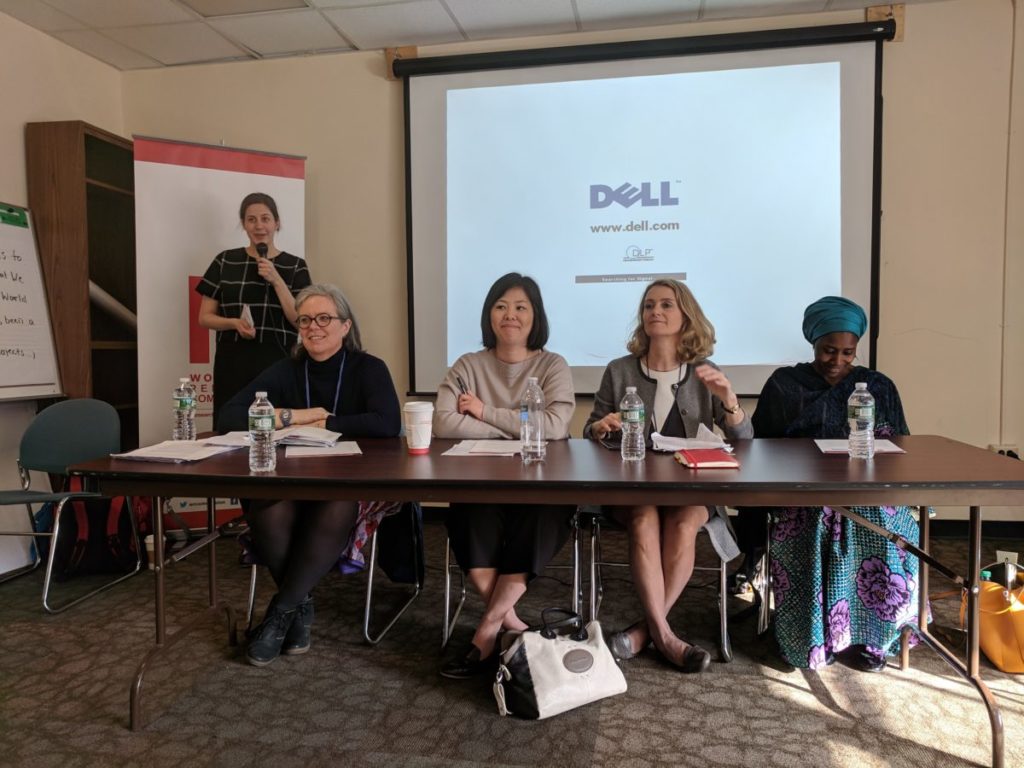Anne Marie McCarthy, Plan International Ireland’s Emergencies’ Programme Manager reports live from New York, USA.
As I sit in New York, watching the sun go down on my last evening of the 63rd Commission on the Status of Women (CSW) at the United Nations Headquarters in New York, I have a lot to reflect on.
More than 5,200 women and men representing civil society, as well as 1,850 delegates from governments, attended this year’s CSW63, which is the UN’s largest gathering on women’s rights issues.
As we were reminded so often during these sessions, feminism calls out the power shift that is required; women’s rights are human rights, and while we have come a long way, there is still so much to achieve.
There was so much to hear and learn, so much information, feminist calls to action, reminding me of the backpack belonging to a young woman I saw during the week with so many badges on her bag I felt that I needed to act! To do something! Empower yourself by empowering those around you! Walk the talk! Challenge gender norms!

From a practical perspective, here are a few things I will take away with me: the need to listen and engage with the people for whom we work, to amplify the voices of the young women and girls; the need for evidence bases for our work, with data disaggregated by sex and age, but also by disability, ethnic group and religion for example, to understand how multiple vulnerabilities can compound poverty and inequality. The right to quality education with learning systems adapted to all learners, regardless of their circumstances was also reinforced.
I have been inspired by so many amazing women, men and youth; we heard from presidents, ambassadors, youth, and women from so many countries; I have been surprised by the pushback from more conservative quarters, who don’t accept the right to promote sexual and reproductive health rights for women and men, boys and girls. This week, the national delegations are trying to agree on the conclusions of the sessions, to get to an agreed wording – there is pushback on many words – some delegations feel that promoting empowerment is too controversial, we should talk about dignity, but today perhaps even dignity won’t survive.
During the week, I attended sessions which talked about how humanitarian situations affect women differently to men; girls are 2.5 times more likely to be out of school than boys; for every four girls enrolled in secondary schools, there are ten boys; risk of child marriage increases in displacement settings; female teachers are harder to recruit and retain, and this acts as a barrier to girls in education; institutions of protection get fragmented in a crisis eg the family, school; 90% of children with disabilities in low and lower middle income countries don’t go to school…
But there were also many examples of positive programming for example the creation of safe spaces where people can connect and engage, and where women can nurture their voices, programmes to end child marriage; to provide sexual and reproductive health programmes to at risk communities and so much more.
I also had the opportunity to speak on a panel entitled “Gender Equality in Humanitarian Action – No More Excuses!” talking about the challenges facing adolescent girls in the Lake Chad basin, and also on a recent Plan International study on ending Child, Early and Forced Marriage in Asia.

Plan International participated in many events during the week; we held a flag ship event “No Girl Left Behind: a High-level Inter-generational policy dialogue” which looked at Age and Gender Responsive Approaches to Social Protection, Access to Public Services and Sustainable Infrastructure.
Plan International’s CEO, AB Albrectsen, addressed the High-Level Interactive Dialogue among Ministers on “Building Alliances for social protection systems, access to public services and sustainable infrastructure for gender equality.” This was the first time that an International NGO was invited to do this.
Finally, I participated in the ICGBV event “Empowering in Emergencies: A conversation with Frontline Responders to GBV”, an event which was opened by Ambassador Geraldine Byrne Nason, the chair of the CSW for this year. This event also saw the launch of the ICGBV report “In Violence we Forget who we were”.
The question was raised at various sessions about how we ensure that the conclusions of the sessions are translated into national policy and action. Part of that responsibility lies with us and how we can work with our own governments to enact legislation and allocate funding to a non-legally binding document.
As I finish writing this, the negotiations are coming to a close, and Phumzile Mlambo, the Executive Director of UN Women has stated: “As we leave here, you’re richer with ideas and new possibilities of what can be done to improve the status of women and girls”. This absolutely reflects how I feel about my experience at the CSW.
I bought a t-shirt in UN gift store with this key message on it and one which is so important:
“Universal Declaration of Human Rights, Article 1. All human beings are born free and equal in dignity and rights”
Let us keep striving.